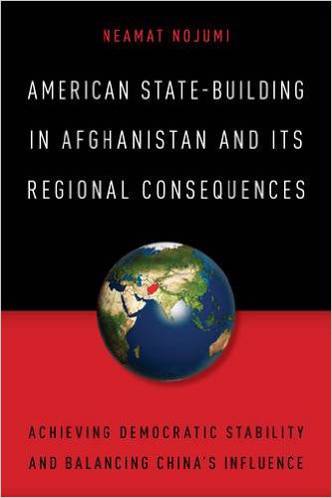
Based on his new book, American State-Building in Afghanistan and its Regional Consequences (Rowman & Littlefield), Neamat Nojumi will assess the shortcomings of US engagement with Afghanistan and the surrounding region, since 2001, and suggest possible alternative courses ahead.
What does the US-led international military intervention in Afghanistan teach us about U.S. foreign policy formation and policy implementation?
- Chair: Kristian Berg Harpviken, PRIO Director
- Discussant: Anne Stenersen, FFI
The 2001 military intervention in Afghanistan is the “Longest US War” ever, and it has been incredibly costly in terms of both taxpayer money and American lives. In this mission, Americans and their NATO allies won every fight, yet, lost the war.
To win, the US and its allies would have needed a political direction in line with the aspiration of Afghans, the “essential interests” of states in Afghanistan’s neighborhood, as well as mid to long-term U.S. national security interests. American and EU political underperformance, both in Afghanistan and the surrounding region, has created a strategic vacuum that is being filled by Russia’s security domination and China’s economic influence, in particular over Southwest and Central Asia, including Iran.
So, given the current state of affairs, what can be done to make the best out of the blood and treasure spent, by the US and NATO, to ensure Afghanistan and its region become a contributor to global peace and stability?
Afghanistan and its region’s geo-strategic importance demands a more active US and EU role, promoting regional economic integration in order to multiply the outcome of local resources toward greater political reforms, sustainable governance and large scale job production. Within this kind of regional-cooperative framework, Afghanistan can emerge as a transit-economic hub so that people can build national institutions, clean their offices from corruption, and end the insurgency against the state. Such a regional development demands that the US and EU revisit their policy, focusing on democratic stability, which in turn can embolden a free market economy and grow a political openness that is superior to authoritarianism and Islamist militancy.
Prof. Dr. Neamat Nojumi has extended academic and policy analysis experiences on conflict transformation, international security, private sector development, globalization and democratization. He is affiliated with Boston University. As a professor at George Mason University, he has recently facilitated the Global Dialogue for Non-Violence.
Nojumi’s current research interest is on Deterrence Doctrines and Practices in the 21st Century Peace-building and is focused on non-state actors, particularly private sector and civil society organizations.
His publications include:
- American State-Building in Afghanistan and its Regional Consequences: Achieving Democratic Stability and Balancing China’s Influence in Southwest and Central Asia (March 2016)
- After Taliban: Life and Security in Rural Afghanistan (2009)
- The Rise of the Taliban in Afghanistan, Mess Mobilization, Civil War and the Future of the Region (2002)





